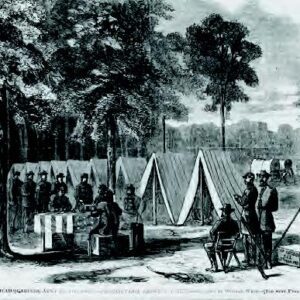March 19, 2024
Clerk Division Continues RI-399 Training and Staffing
The Clerk Division has ramped up our training of clerk craft jurisdiction/machine staffing advocates for the Regional Instruction (RI)-399 process. After conducting a class on RI-399 at the All-Craft Conference in Las Vegas, NV in October 2023, the craft has pledged to persist in our educational efforts, as this is a continuing promise to fight the Postal Service’s violations of craft jurisdictional national awards for certain types of duties in mail processing and staffing.
As the USPS accelerates Postmaster General DeJoy’s 10-year plan and opens additional mail processing facilities, craft assignments at the local level to duties in automation are leaning towards the mail handlers, rather than complying with previous national-level determinations and national arbitration awards regarding craft jurisdictional assignments. The Clerk Division is determined to oppose these cross-craft violations with every tool in our possession.
As a result, Clerk Division Director Lamont Brooks scheduled an intense week-long training session between Feb. 26 – March 1, 2024. Those assigned to attend were: the five RI-399 Regional Dispute Resolution Committee (RDRC) members (all of whom are Clerk Division National Business Agents (NBAs)), three APWU assigned Internal Assistance Regional Representatives for RI-399 (who are also NBAs), and 18 local RI-399 Clerk Jurisdiction & Staffing Advocates from all five APWU regions. Instructors for the class were Clerk Division Assistant Director Lynn Pallas-Barber, who also serves as the APWU liaison on the National Dispute Resolution Committee (NDRC), and APWU RI-399 NDRC Representative Ron Suslak.
The training examined the history of tripartite agreements between the APWU, the Postal Service, and the National Postal Mail Handlers Union, beginning with the first such Memorandum of Understanding (MOU) in 1992, and concluding with the 2018 RI-399 Update MOU. The class included a review of craft jurisdiction assignments for automated machines currently in use at mail processing facilities, and an explanation and discussion of how to conduct site visits. Wednesday’s training consisted of analysis and dialogue on local RI-399 craft jurisdiction inventories and a mock Local Dispute Resolution Committee (LDRC) meeting.
The final two days of the class consisted of clarifying LDRC disputes and the use of LDRC forms, ling position papers when a LDRC dispute is appealed to the RDRC, a discussion on arbitration awards in craft jurisdictional disputes, the content of RI-399 documents on the Clerk Division webpage, and guidelines concerning the differences between RI-399 craft jurisdictional disputes, and Article 7 cross-craft violations.
Clerk Division Director Brooks stated, “The Clerk Craft will not stand idly by and allow our work to be given away to the mail handlers by the Postal Service.” He continued, “We wanted to bring in our newly appointed RI-399 craft jurisdiction and staffing advocates so they could consult with our experienced NDRC and RDRC representatives and learn as much as possible as we continue this fight for clerk craft work”. These newly trained advocates will be used to assist locals in their respective regions. “Many thanks to APWU President Mark Dimondstein for his commitment to this endeavor and for approving the appointment of these advocates to assist our craft in this essential and crucial battle for the life of the clerk craft,” Brooks concluded.
Clerk Craft members are urged to be attentive to craft jurisdiction issues in their mail processing operations and to contact their local RI-399 representatives if work assignments are inappropriately transferred to mail handlers. Mail processing facilities have experienced and will see more craft jurisdictional disputes as the Sorting and Delivery Centers and Regional Processing and Distribution Centers increasingly grow in numbers throughout the country. We must maintain solidarity within our ranks of the clerk craft to ensure that this battle is won and jobs are not lost to another craft due to the Postal Service’s improper craft jurisdiction assignments. In union solidarity, the struggle continues. ■



